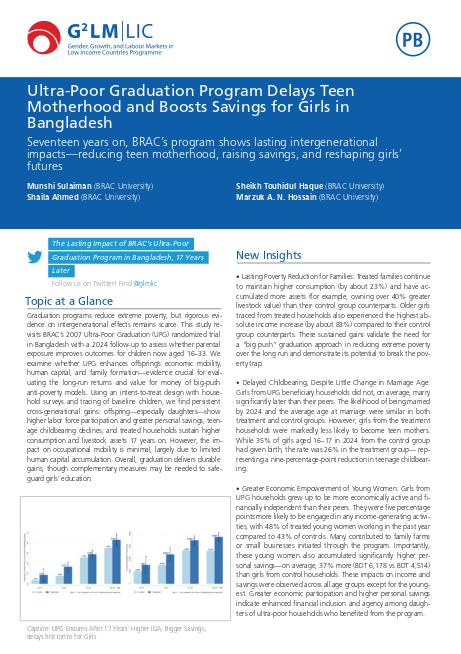Graduation programs reduce extreme poverty, but rigorous evidence on intergenerational effects remains scarce. This study revisits BRAC’s 2007 Ultra-Poor Graduation (UPG) randomized trial in Bangladesh with a 2024 follow-up to assess whether parental exposure improves outcomes for children now aged 16–33. We examine whether UPG enhances offspring’s economic mobility, human capital, and family formation—evidence crucial for evaluating the long-run returns and value for money of big-push anti-poverty models. Using an intent-to-treat design with household surveys and tracing of baseline children, we find persistent cross-generational gains: offspring—especially daughters—show higher labor force participation and greater personal savings; teenage childbearing declines; and treated households sustain higher consumption and livestock assets 17 years on. However, the impact on occupational mobility is minimal, largely due to limited human capital accumulation. Overall, graduation delivers durable gains, though complementary measures may be needed to safeguard girls’ education.

Ultra-Poor Graduation Program Delays Teen Motherhood and Boosts Savings for Girls in Bangladesh
- Munshi Sulaiman
- Shaila Ahmed
- Sheikh Touhidul Haque
- Marzuk A. N. Hossain